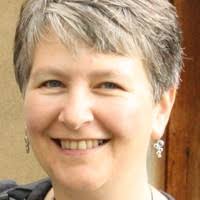During the summer of 2023 there have been a number of changes and proposed changes affecting the Early Years sector. From early years funding, Ofsted consultations, EYFS revisions to Childminder updates and mentoring programmes, in this highly informative and useful article, Rebecca Martland takes a look at what these are so you can stay up to speed with recent updates.
EYFS 2023: revised version effective from September 4th
- 29 ‘Children must usually be within sight and hearing of staff and always within sight or hearing. Whilst eating, children must be within sight and hearing of a member of staff.’
- Following recent choking incidents in childcare settings, including where a child has tragically died, supervision requirements when children are eating have been strengthened. It is now a requirement that children MUST be in SIGHT of an adult whilst eating, as well as in hearing. This is because choking is silent and if a practitioner cannot see a child’s face, they may not realise that the child is in difficulties.
- This change is an ideal opportunity to think about how mealtimes are managed in your setting, and if you don’t already do so, organise for staff to sit and chat with children, using mealtimes as opportunities to support the development of social and communication skills.
- 33. For children aged two: there must be at least one member of staff for every five children
- This change applies to group settings only.
- There have been significant concerns raised about the potential risks of increasing the number of 2-year-olds an adult may care for, including safety and welfare risks to the children, challenges to effectively meeting the learning and development requirements for each child, and the additional burdens placed on staff increasing their workload by 20%. However, settings do not have to change to a 1:5 ratio and can maintain the current 1:4 if preferred, or if their risk assessments suggest doing so would be unsafe.
- 43. If a childminder can demonstrate to parents and/or carers and Ofsted inspectors or their childminder agency that the individual needs of all the children are being met, exceptions to the usual ratios can be made for example:
- when childminders are caring for siblings, or (previously said ‘sibling babies’)
- when caring for their own child, or (previously said ‘baby’)
- to maintain continuity of care, or
- if children aged three to five only attend the childminding setting before and/or after a normal school day51, and/or during school holidays, they may be cared for at the same time as three other young children.
In all circumstances, the total number of children under the age of eight being cared for must not exceed six per adult.
- This change has been causing some consternation in the childminding community as the DfE summary is worded in such a way as to suggest that exceptions to ratios had been restricted to siblings or a childminder’s own child which is not the case. All the examples of when an exception might be made have been retained. The only change is from stating ‘baby/ies’ to ‘child/ren’. It is worth noting that this list is not exhaustive and therefore childminders might identify other reasons for making an exception. This is permitted as long as the requirements stated in EYFS 3.31 continue to be met: 31. Exceptionally, and where the quality of care and safety and security of children is maintained, changes to the ratios may be made. This applies to all settings, but childminders cannot have more than six children under the age of eight per adult providing care.
EYFS guidance documents

EYFS 2024
Earlier this year a consultation took place on further proposed changes to the EYFS, focusing on the safeguarding & welfare requirements. The government’s response to this is due to be published this autumn with any changes implemented from spring 2024. It’s important to remember that at this stage these are all just proposals and may not actually happen. This article will be updated to reflect the final changes, once published.
Two versions
It is proposed that the EYFS should be presented as two versions: one relating specifically to childminders, the other to group and school providers. The DfE have been at pains to reassure the sector, particularly childminders, that this will not involve any form of dumbing down or dilution of requirements for any provider. The aim is simply to provide clarity, by removing any references to elements that do not apply to all provider types or where requirements differ, such as ratios.
Key points – both versions:
English as an additional language (EAL): must (current), should or may (proposed) take reasonable steps to provide opportunities for children to develop and use their home language in play and learning, supporting their language development at home
Collection of physical evidence: change the wording regarding assessment from [Practitioners/Childminders] should not be required to prove this through collection of any physical evidence’’ to “are not required’’
Child protection: change the wording regarding the use of mobile phones and cameras in the setting to also include other electronic devices with imaging and sharing capabilities, such as smart watches and other wearables, in recognition of advances in digital technology.
Childminder version only
- Move the Early Learning Goals (ELG’s) to an annex at the end of the document:
- The ELGs are not part of the curriculum and are only intended to be used at the end of EYFS, in the reception year, as part of the EYFSP assessment, so are not normally relevant to childminders, unless they have a child deferring their school place to start school in Year 1.
- Remove the section on the Reception Baseline Assessment (RBA):
- This assessment is only undertaken in schools and is never carried out by childminders, so is not necessary.
- Clarify that when working in a group each childminder is responsible for meeting the safeguarding requirements of their own registration, but with a shared responsibility when working together
- Remove the requirement for childminders to undertake specific training in the EYFS before registering They would be able to assess any previous training and their current knowledge of the EYFS to decide if any further training would be appropriate or necessary for them to be able to demonstrate the required level of knowledge and understanding sufficiently at their pre-registration inspection.
- Allow childminder assistants to act as a key person if the childminder deems them competent.
- Remove “kitchen” from the list of areas excluded in space requirements, instead allowing childminders to consider what areas within their kitchens space may be safely used by children.
- Replace the requirement for childminders to always have a separate space available to hold private conversations, with a space to be made available on request instead, recognising the particular needs of working from a home environment.
- Remove the requirement for childminders to display their certificate of registration and paediatric first aid certificate, although they must make these available on request.
Group settings only
- Clarify that while staff qualifications must always be verified, employers are not required to see physical copies of those qualifications.
- Remove the requirement for level 3 practitioners, except the manager, to hold a level 2 (GCSE or equivalent) maths qualification, with a grace period for managers to achieve this. This would apply to new managers or those moving to a new managerial post.
- Create a route for practitioners to gain approved status to work at level 3 within ratios for those who hold a qualification that meets most of the Level 3 Early Years Educator criteria. This would be similar to the approval method currently used to accredit overseas qualifications.
- Allow students on long-term placements and apprentices to count within ratios at the level below the one they are studying
- Change the qualification requirements for ratios so these would not apply outside of peak working hours (9.00am-5.30pm) although age group ratios would still have to be maintained.
- Reduce the percentage of level 2 qualified staff required from 50% to 30% or 40% of all other staff.
- Change the wording to make it clear that only those with Qualified Teacher Status, Early Years Teacher Status and Early Years Professional Status can operate in the level 6 staff:child ratios of 1:13

Early Years Inspection Handbook
The Early Years Inspection Handbook has been updated to reflect the changes in the EYFS 2023.
Other amendments and additions:
- expectations for conduct during inspections
- a more comprehensive section detailing how safeguarding is judged, including a definition of an open and positive culture of safeguarding
- what inspectors should consider when deciding if a provider has the capacity to improve
- who the inspection outcome may be shared with
- the link between the provider’s curriculum and how this supports the behaviours and attitudes of the children at the setting rather than judging the setting on children’s behaviour
- an amendment in the quality of education judgement to refer to how practitioners and leaders use assessment to plan suitable activities
Other minor changes, made November 22, include:
- Paragraph 48: New footnote added to clarify that inspectors do not need to see DBS checks for childminders and any known assistants and/or household members on inspection.
- Paragraph 175: First sentence deleted to remove the implication that teaching cannot be ‘top down’ or formal, as in some situation direct teaching may be appropriate.
Summary of changes.
Funding changes
In the spring budget of 2023, a raft of support for parents was announced, including an extension to current childcare funding. Although full details of how some of this will work is yet to be provided the key points are:
- From April 2024: In addition to current entitlements 2-year-olds of eligible working parents will receive 15 hours per week of funded childcare (over 38 weeks PA)
- From Sept 2024: this will be extended to children aged from 9-months-old
- By Sept 2025: entitlements for all children aged from 9-months of eligible working parents will be increased to 30 hours per week (over 38 weeks)
The DfE released a new early years supplementary grant (EYSG), detailing the funding rates allocated to Local Authorities covering from September 2023 to March 2024, with a consultation launched on how the funding should be calculated from April 2024 onwards. These rates are not necessarily the amounts that providers will receive, as the LA’s are able to take up to 5% to cover their admin costs and some LAs have yet to advise their providers of the new rate. In many cases, providers are being paid at the old rate, with a balancing payment later in the autumn term.
- 3-and-4-year-olds – average £5.62 and no lower than £5.20 (an increase of 6%)
- 2-year-olds – average £7.95 (an increase of 32%)
It was also announced that there would be an increase in the maximum amount that parents can receive for childcare support through the Universal Credit system, which became available from the 28th of June 2023.This change also applies to families in Wales.
Payments have risen from £646 to £951 for one child and from £1108 to £1,630 for two or more children. These will be paid upfront rather than in arrears for parents entering work or increasing their hours, meaning they should have money to pay one month in advance going forward. Until now, many low-income families struggled with upfront childcare bills, making it harder for them to work.
Early Years Funding Formula from April 2024
Ofsted
Ofsted launched a Consultation proposing changes to current complaints and appeal process which closed on 15.09.23
The proposals include
- Offering the opportunity for providers to call Ofsted on the day after the end of an inspection visit, to discuss any unresolved issues.
- To check with providers at a few specific stages of the inspection visit, in addition to the current routine checks throughout the inspection, whether they have any queries or concerns.
- Offer two new routes that providers can go down when they receive their draft inspection report:
- To highlight minor points of clarity or factual accuracy, which will be dealt with promptly so the report can be published, or
- To seek a review of the inspection findings and judgements by submitting a formal complaint
- Removing the current internal review step in the complaints process and instead, raise concerns directly with the Independent Complaints Adjudication Service for Ofsted (ICASO)
Ofsted Post Inspection Complaints consultation information and proposals (the consultation closed 15.09.23)

Childminder Mentoring Programme
Following on from the group setting ‘Expert and Mentors Programme’, the Department for Education (DfE) is offering a programme of support for childminders across England, from May 2023 until July 2024. Virtual support is provided for one term by mentors who are all experienced early years practitioners who have at least three years’ experience as a current childminder, former childminder or someone working in a role supporting childminders.
The Childminder mentor programme is focused on supporting childminders to address the impact of the COVID-19 pandemic, with areas of support covering
- Providing advice, guidance, and suggestions to enable improvements in practice.
- Supporting children most impacted by the COVID-19 pandemic.
- Implementing the revised Early Years Foundation Stage (EYFS) Framework 2021/2023, including reducing unnecessary tracking and paperwork.
- Providing advice for supporting children with Special Educational Needs and Disabilities (SEND) and English as an Additional Language (EAL)
- Building strong relationships with parents and carers.
This support is free and available across England.
Closing dates for each term are as follows:
- to access support for the Spring term the deadline for submission will be 30thNovember 2023 and
- to access support for the summer term the deadline for submission will be 17thMarch 2024.
Childminders can apply for support as an individual, or as a group of up to 4 childminders
Further support available for early years professionals:
- Expression of interest for cohort 3
- Free online training covering communication and language, maths and PSED – mix of webinars and self-led learning
- Level 3 – entry requirement
- Free, online self-led training modules
- Bite-size articles, in-depth features, and videos on various topics
About the author

With over 20 years’ experience in the early years sector, Rebecca Martland is an early years trainer, consultant, author and 4-times Ofsted ‘outstanding’ registered childminder. Rebecca is a staunch advocate of play based, child-centred education and childcare, with a keen interest in supporting and enthusing others to share this philosophy.



